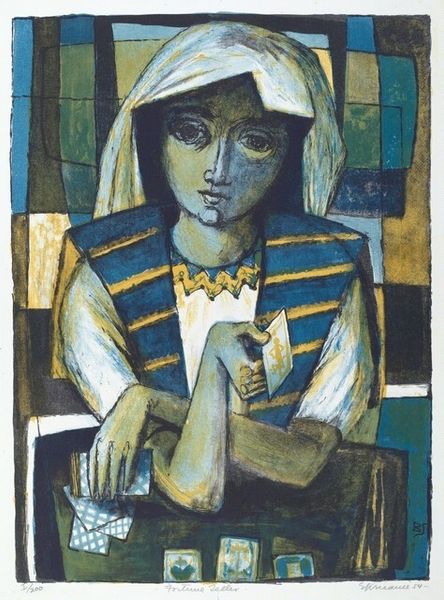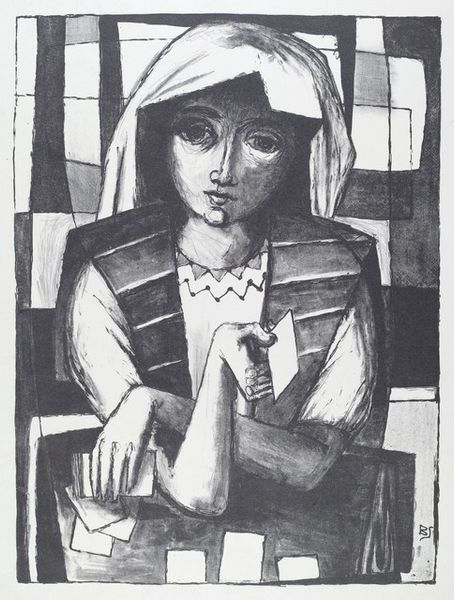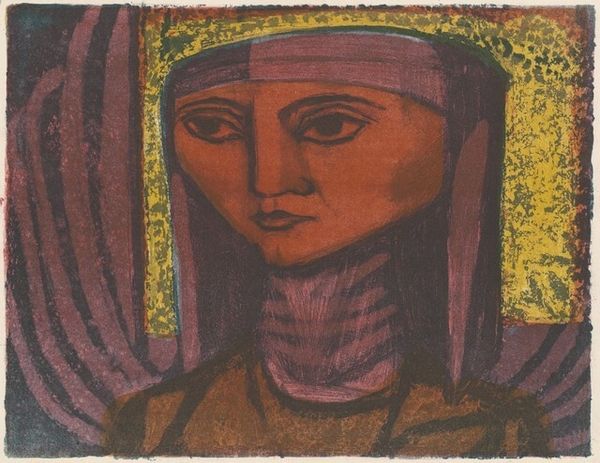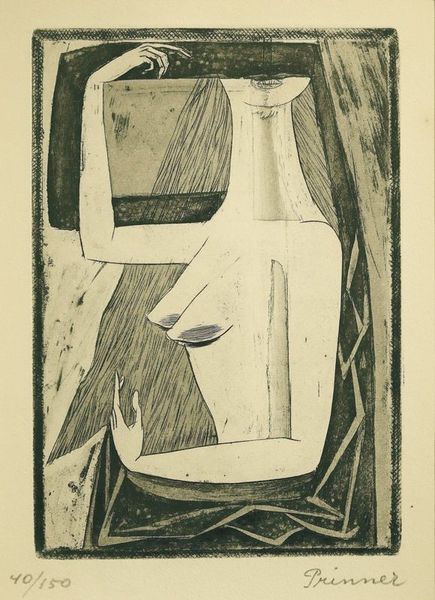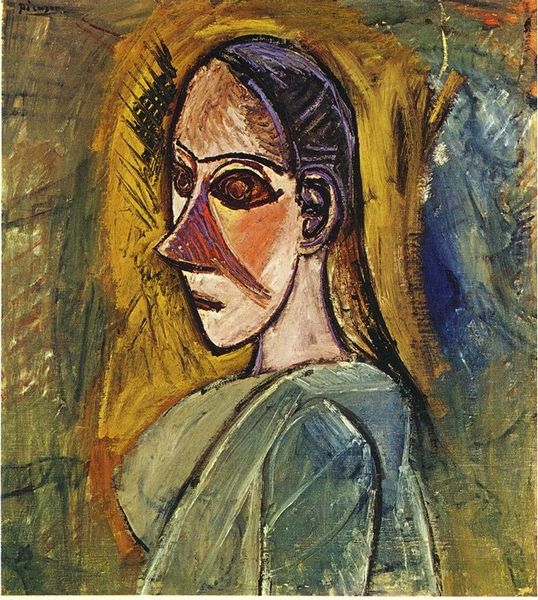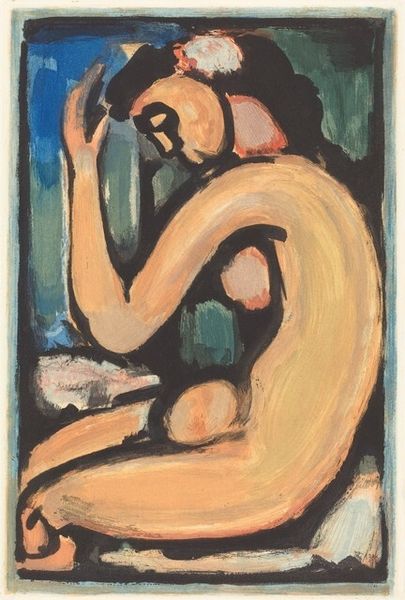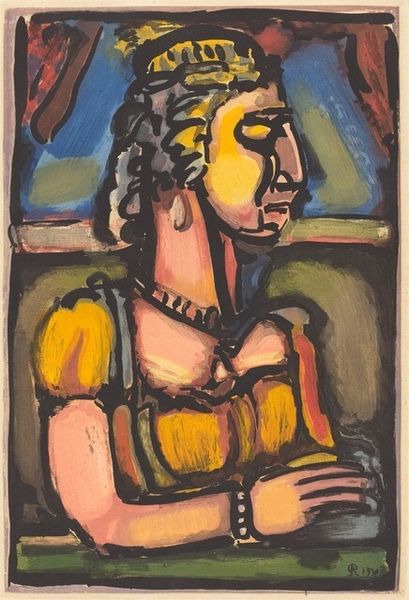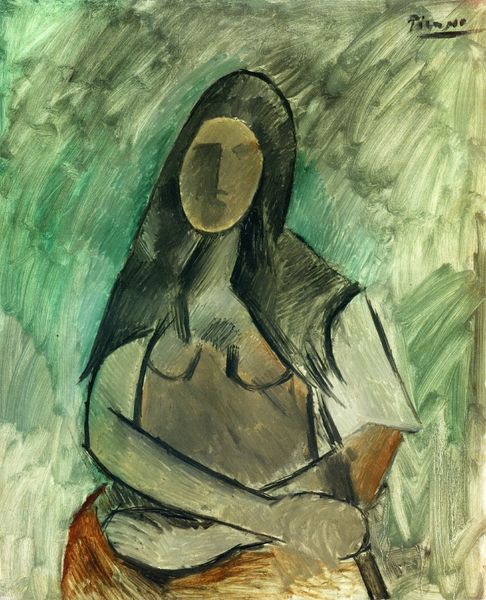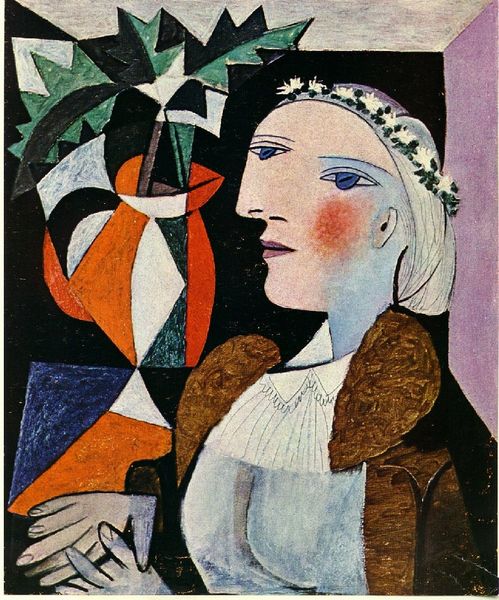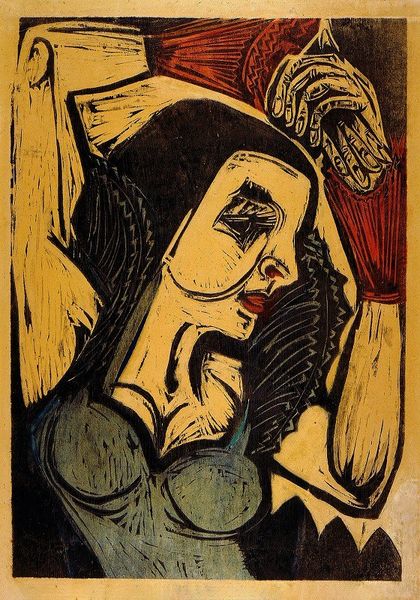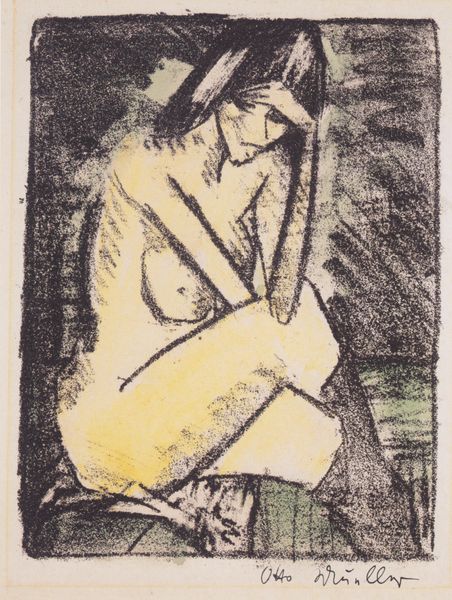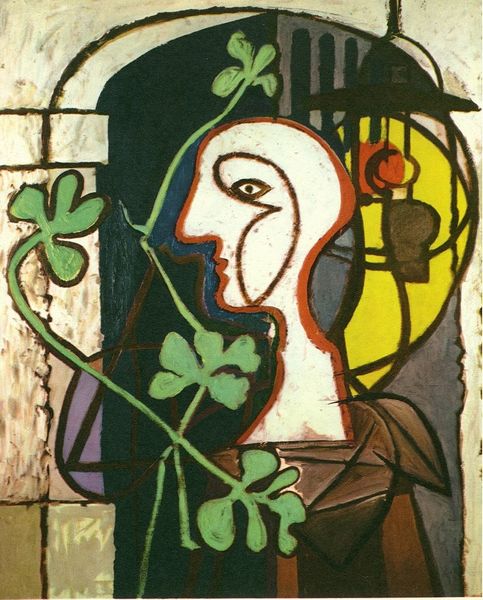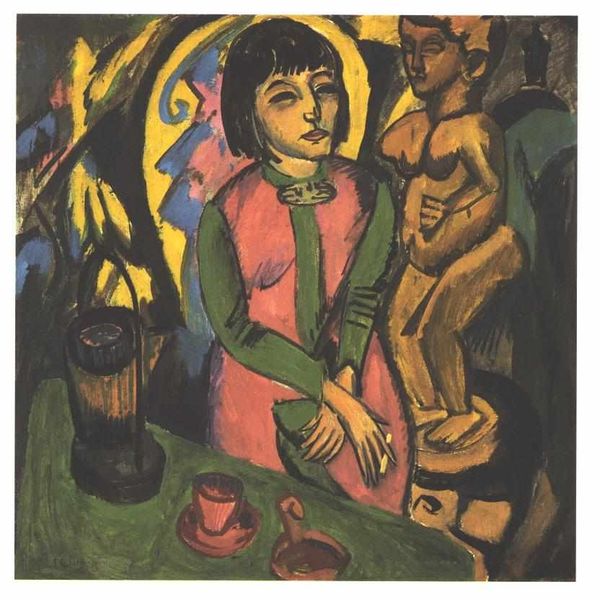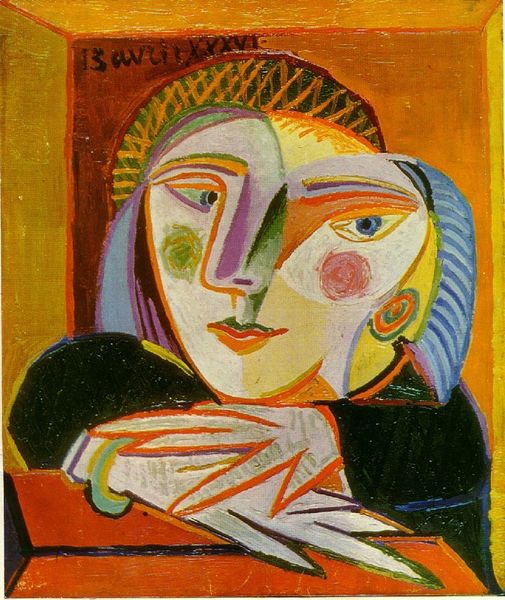
Copyright: National Gallery of Art: CC0 1.0
Editor: We’re looking at Benton Spruance's 1954 lithograph, "Fortune Teller." The greenish, muted palette gives the piece a somewhat unsettling mood, and the angularity of the figure, combined with the traditional theme of fortune telling, really grabs my attention. What’s your take on this piece, from a historical perspective? Curator: Well, it's fascinating how Spruance, working in mid-20th century America, uses a traditional subject like fortune telling to perhaps reflect anxieties of the time. The Cold War era was marked by uncertainty, and people often sought ways to predict or control their future. Do you see any other visual elements that contribute to this feeling? Editor: The fragmented planes of the background, the way the figure seems almost trapped within these blocks, does evoke a sense of unease. And her somewhat blank stare. Curator: Precisely. Considering that Spruance was known for his social commentary through art, it's tempting to view this fortune teller as not just offering predictions but also representing the pervasive anxieties of post-war society. How the art world and popular culture intersected is key here; spiritualism and divination experienced a resurgence alongside Cold War anxieties. Editor: That's a perspective I hadn't considered, the wider societal trends reflected in such an individual, almost intimate scene. I’ve typically viewed "Fortune Teller" as solely an art nouveau inspired print, not a political commentary. Curator: Exactly. Seeing beyond stylistic labels allows a deeper engagement with the artwork and reveals Spruance's place within his socio-political context. What about the visual elements now, do they resonate with any period artworks? Editor: Well the cubist elements in the background resonate with a very strong trend of geometric style of post-war art, however, in context with this being social commentary it suggests more that pure aesthetics. Curator: I think we both learned how social events shape production of even fortune-telling, something that feels extremely personal in a vacuum! Editor: Yes, thinking about historical background enriches my interpretation, thank you!
Comments
No comments
Be the first to comment and join the conversation on the ultimate creative platform.
